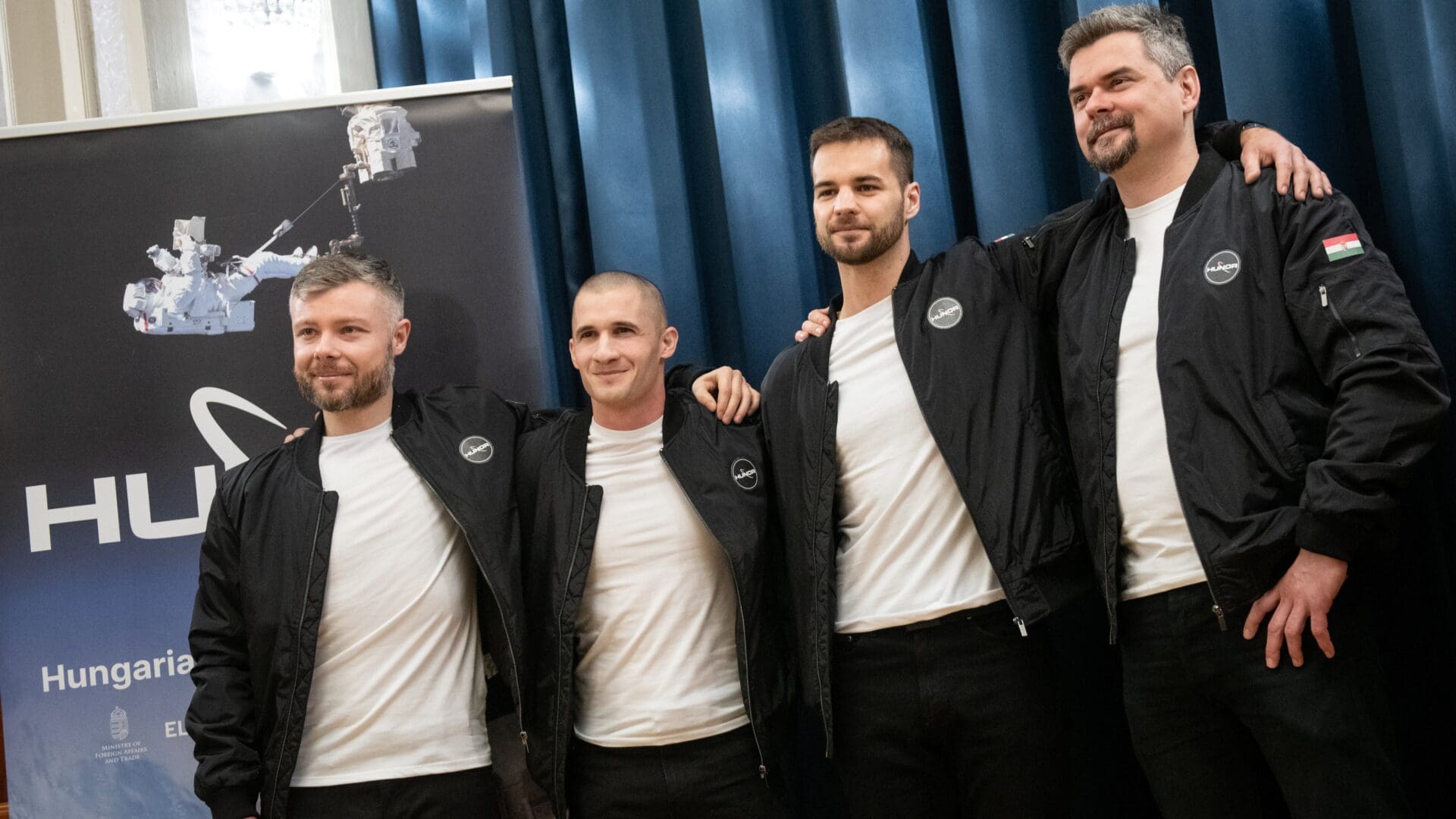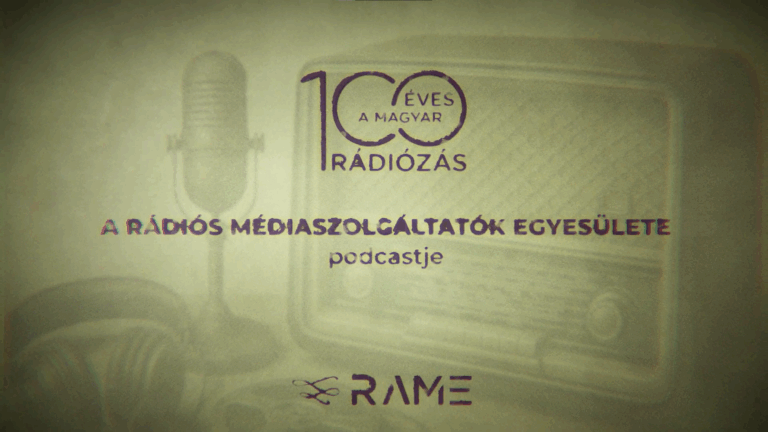The HUNOR – Hungarian Astronaut Programme starts its two-year training with a doctor and three engineers in Hungary’s newly established professional astronaut corps, the Ministry of Foreign Affairs and Trade announced on Tuesday to the MTI news agency.
According to their statement, the names of the four candidates were revealed during a press conference on Tuesday. Gyula Cserényi, Tibor Kapu, Ádám Schlégl, and András Szakály made the final list of trainees, one of whom will participate in a nearly month-long scientific mission aboard the International Space Station, they wrote.
Orsolya Ferencz, the Ministry Commissioner for Space Science, emphasised in her opening speech that Hungary is returning to space. Based on how strongly Bertalan Farkas’—who attended the conference as a guest— space flight in 1980 affected Hungarian scientific life, the main goal of the current astronaut programme is well-founded: to put Hungarian science and high-tech industry on a long-lasting, upward trajectory.
Miklós Maróth, president of the Eötvös Loránd Research Network (ELKH), said the government has designated ELKH’s Energy Science Research Centre Space Research Laboratory as the coordinator, executor, and professional leader of this comprehensive space project. The HUNOR Programme includes astronaut selection, training, and experimentation on the International Space Station among the wide range of capabilities available to ELKH, according to the statement.
Gábor Magyari, the professional leader responsible for astronaut selection and training in HUNOR, said that they received 240 valid applications, which they narrowed down to the four astronauts to be trained in accordance with the requirements of the European Space Agency, NASA, the International Space Station, and the programme’s private industry partner, Axiom Space. During the nearly year-long selection process, they tested the mental performance, physical endurance, personality stability, scientific work level, and team collaboration and leadership skills of the candidates, according to the expert.
The four selected candidates are Gyula Cserényi, a 33-year-old electrical engineer; Tibor Kapu, a 31-year-old space industry development engineer; Ádám Schlégl, a clinical orthopedic surgeon; and András Szakály, a 40-year-old aerospace design engineer.
- András Szakály highlighted the potential of the HUNOR Programme, expressing optimism that with its technological and scientific developments, more and more excellent Hungarian engineers will find professional challenges matching their skills at home.
- Ádám Schlégl anticipates that the programme will save more human lives through scientific advances in telemedicine.
- Gyula Cserényi approaches the dangers of the space station with the same confidence he faced the tough decisions he had to make in his previous work.
- Tibor Kapu declared that they are determined to face the challenges of the next two years.
The goal of the HUNOR Hungarian Astronaut Program is to send a Hungarian research astronaut to the International Space Station, where they will be carrying out primarily Hungarian-developed scientific experiments for nearly a month.








